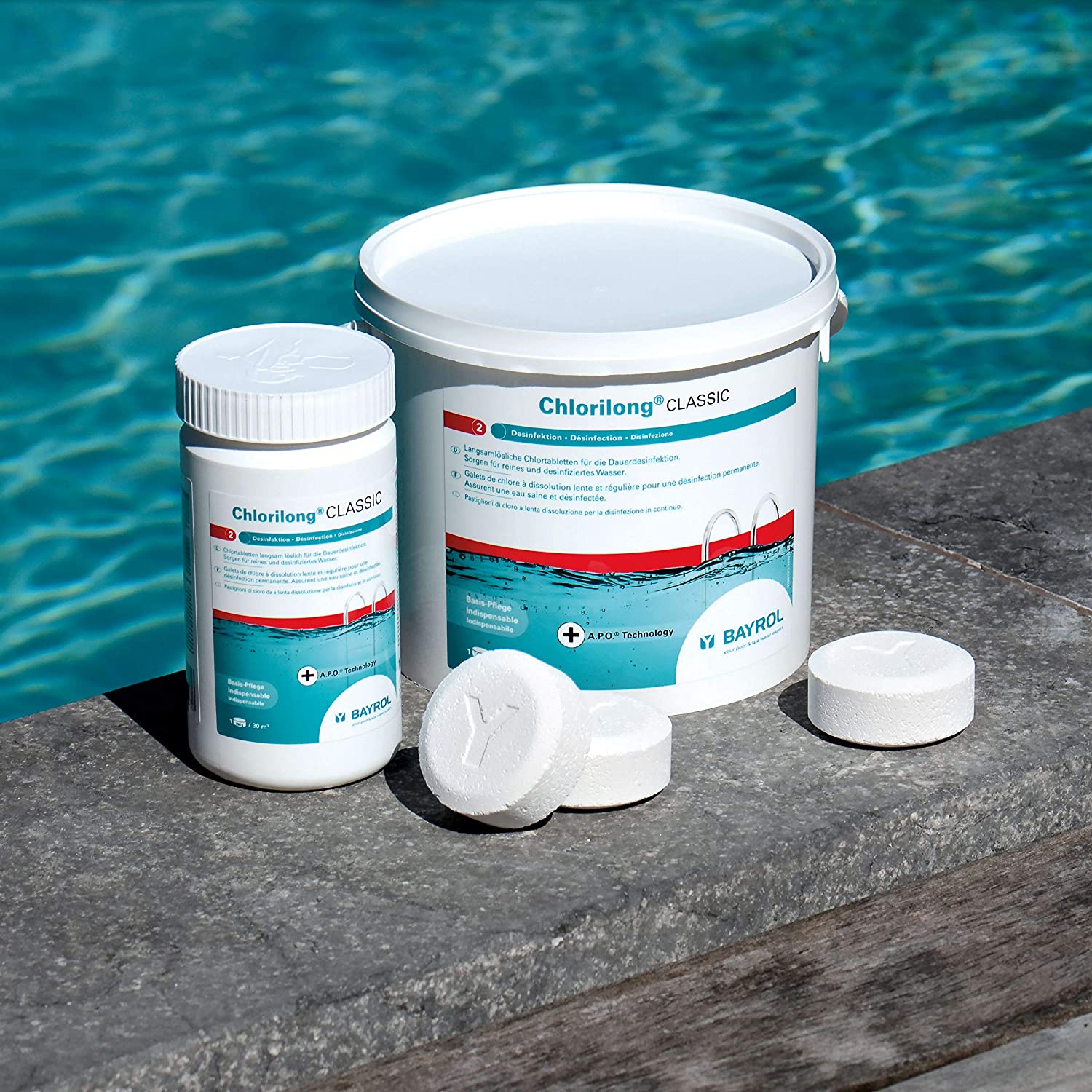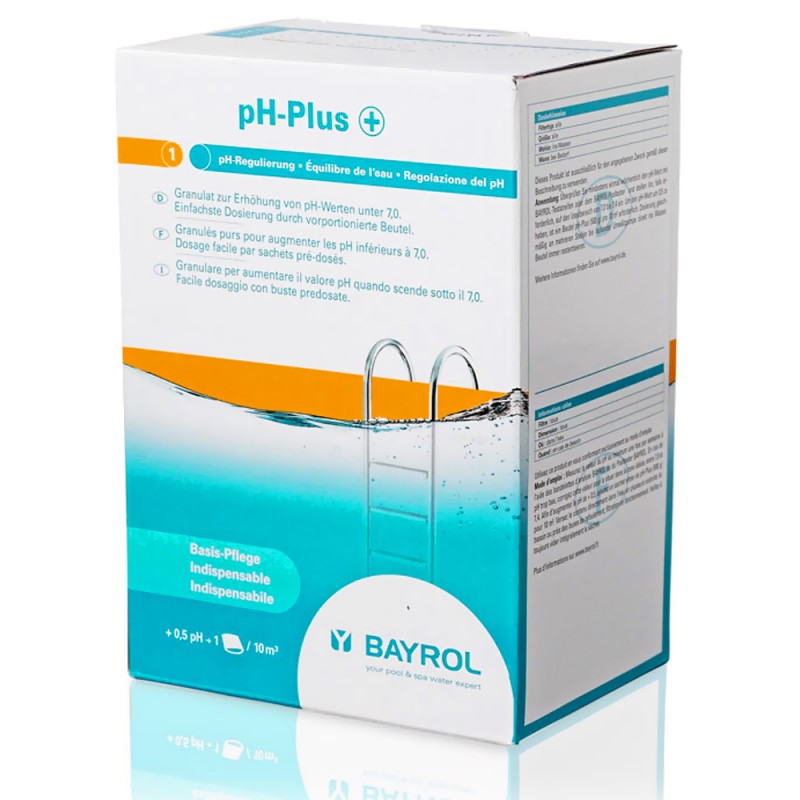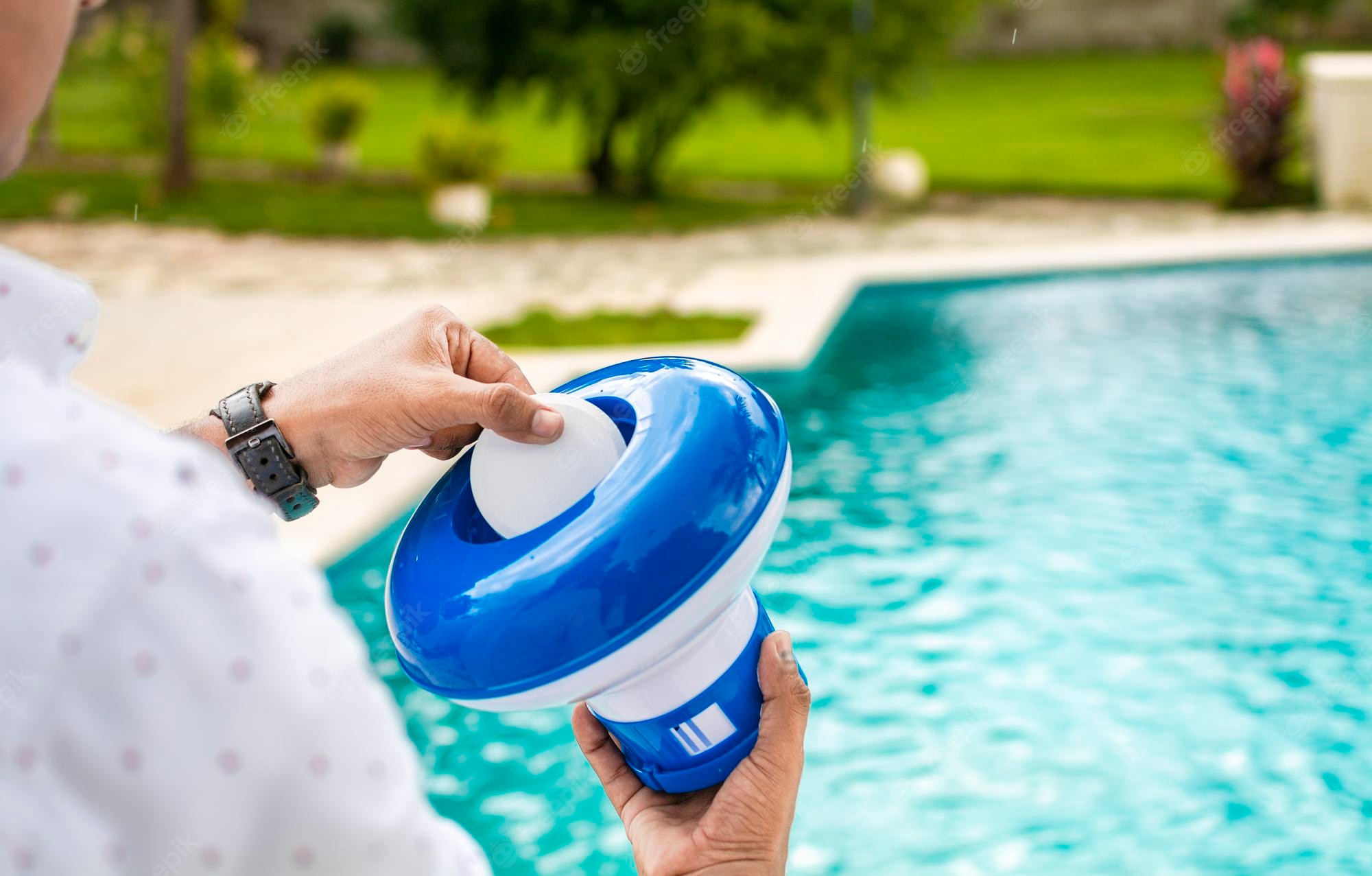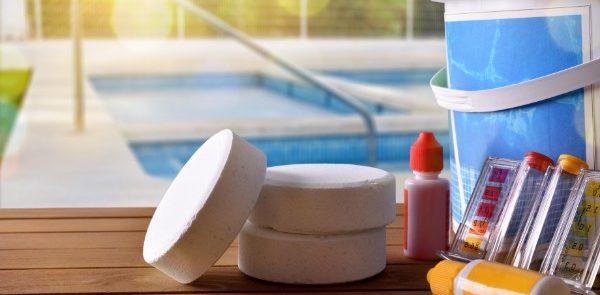Pool chemicals and their functions
Pool chemicals for frame pools, like pool chemicals for inflatable pools, includes fairly standard disinfection, cleaning, and water pollution prevention measures. The small size of such tanks allows for the particularly efficient use of chlorine-based pool chemicals. This element fights bacteria and quickly evaporates from the surface of the pool.
Pool chemicals perform the following tasks:
• destruction and prevention of fungi, viruses and bacteria;
• water pH stabilization;
• removal of water turbidity;
• combating algae and preventing their growth.
Pool chemicals can be multi-functional or designed to perform a specific function. In order to keep the pool clean, it is necessary to choose and use pool chemicals regularly. Depending on the purpose, all pool chemicals for water purification in the pool are divided into groups:
Disinfectants (chlorine, active oxygen, bromine). They destroy bacteria, fungi, viruses and prevent their further reproduction. Water disinfection in the pool is carried out in two ways:
• primary treatment ("shock" chlorination);
• preventive treatment (long-acting chlorination).
Pool chemicals in tablets or granules are used for initial treatment, which intensively treat the water.
The main basis of "shock" chlorination is organic chlorine, which dissolves in water, creating an increased concentration of active chlorine.
"Shock" chlorination, the consumption of pool chemicals, as well as the price can vary greatly depending on the manufacturer of the pool chemicals. For example, Chinese pool chemicals can be sold at a low price, but their consumption is much higher than similar products from German manufacturers, and the efficiency is lower. Generally, the low cost of the product may mean that organic chlorine is replaced by chlorinated lime.
"Shock" treatment is performed on average once a month. Pool chemicals for "shock" chlorination need to be used more often due to several factors:
• high water temperatures;
• frequent use of the pool;
• rain, wind - brings algae and dirt;
• poor water filtration.
In order to maintain the purity of the pool water at a suitable level, it is necessary to apply long-term chlorination. This provides a "hygienic" (0.5-1 mg/l) chlorine concentration in the water. Although it does not protect against oxidation, dirt ingress, it is sufficient to prevent the reproduction of viruses and microbes.
Prevention of algae growth (algicides). In an open pool, chlorine is not always 100% able to deal with algae. Therefore, it is necessary to use special pool chemicals for the destruction of aquatic plants - preparations from the group of algicides. Such pool chemicals penetrates the algae and completely destroys it.
There are a lot of algaecides on the market and despite the many "shouting" names such as "Improved Formula" etc., they have almost the same composition. Differences in the chemicals can include concentration, fine additives, and the ability to foam or not. When the first signs of algae growth appear (green suspension in the water, green coating on the walls), it is necessary to use pool chemicals - a shock dose of triglycerides and regularly add a maintenance dose to the water for prevention. The dose is determined according to the instructions and depends on the concentration of the active substance, the form of release and the manufacturer.
Water turbidity chemicals. When there is turbidity (organic and mineral particles) in the pool, which the filtration system cannot cope with, it is necessary to use coagulants (flocculants). Coagulants should be used only when necessary and not regularly, otherwise the filter may become clogged. Otherwise, the flocculant can be used at a lower dose and released into the pool via an automatic dosing station. A liquid flocculant is suitable for such dosage, the tablet is better to use in case of high turbidity.
pH adjustment chemicals. The optimal pH level in the water ensures the efficiency of using pool chemicals and comfortable bathing conditions (no skin and eye irritation). In addition, pool chemicals prevents lime scale and corrosion from forming in the pool bowl. Most of the time, thanks to pool chemicals, it is necessary to reduce the pH level in time to avoid water turbidity. To do this, use pool chemicals ph-minus. Before completely purifying the water, the pH should be reduced to 6.8-7. It is important to use pH-plus pool chemicals to raise the pH. Both reagents are produced both in dry (tablet) and liquid form. Their use depends on the chemicals of the pools, which may vary from manufacturer to manufacturer. There are additional pool chemicals used in pool maintenance:
• pool chemicals that increases/decreases water hardness;
• swimming pool chemicals for water treatment;
• pool chemicals to prepare the pool for wintering (intended to preserve the pool during the winter);
• pool chemicals for swimming pools;
• pool chemicals for cleaning the filter tank;
• pool chemicals that removes metal from water;
• pool chemicals to remove the greasy film from the water surface and pool walls.
One of the popular brands of pool chemicals is Baylor. Pool chemicals from this manufacturer can be purchased at an attractive price, and these pool chemicals are really effective.
How to use pool chemicals to clean water
Pool chemicals that are used for swimming pools are used in accordance with some recommendations to increase the efficiency of pool chemicals:
• Pool chemicals are used in strict compliance with instructions and dosages.

• When choosing pool chemicals for water treatment, you need to know the volume of the pool.
• Reactive elements are preferably added to the water through a skimmer or a special float.
• Using pool chemicals, the pool can be used after two hours.
• Chlorine-free pool chemicals are more expensive than traditional pool chemicals, but are safer and do not cause allergic reactions.
• Chlorine pool chemicals is more suitable for "shock" disinfection.
• "Shock" chlorination should be done at night.
• Tablets or dry pool chemicals should not be thrown directly into the pool, they should be dissolved in a small amount of water.
All swimming pool chemicals can be ordered in the esaunashop.com store.

